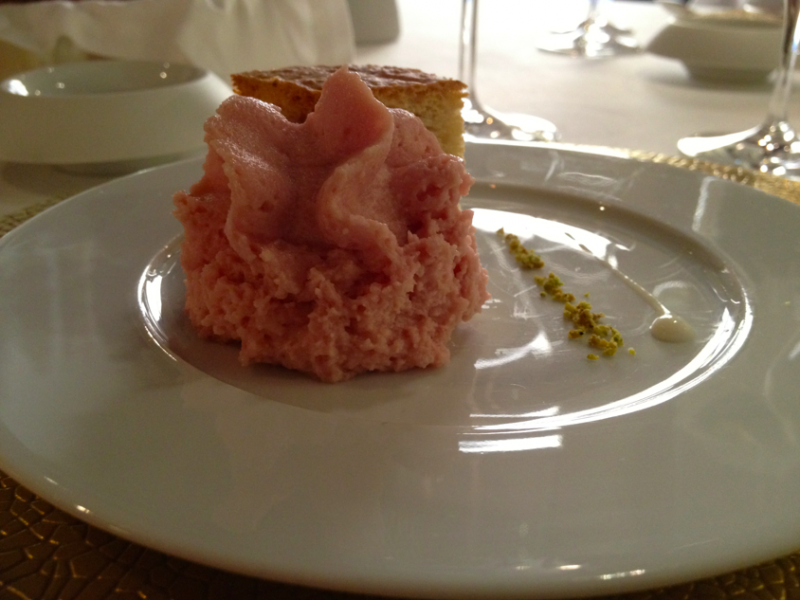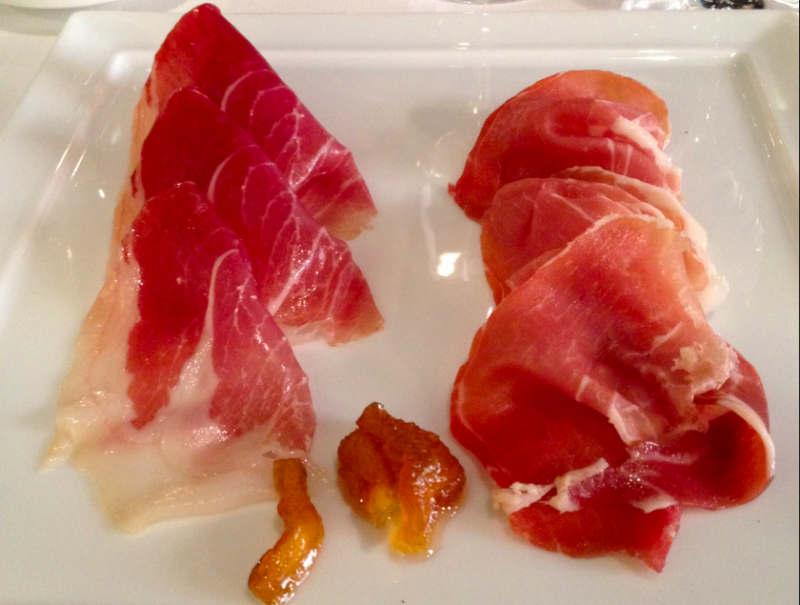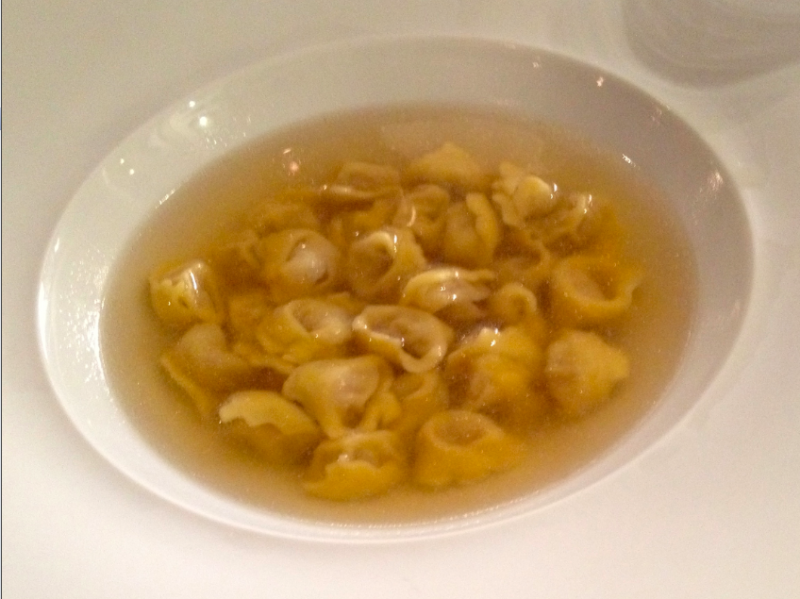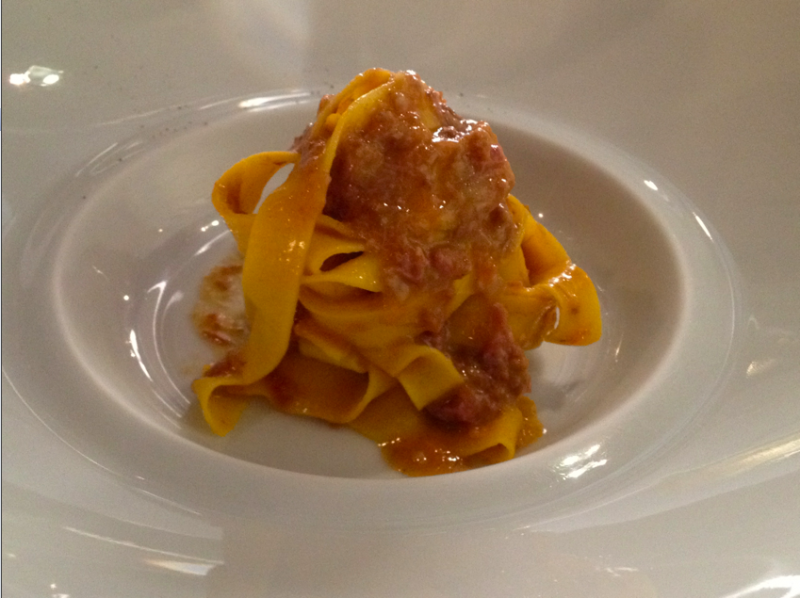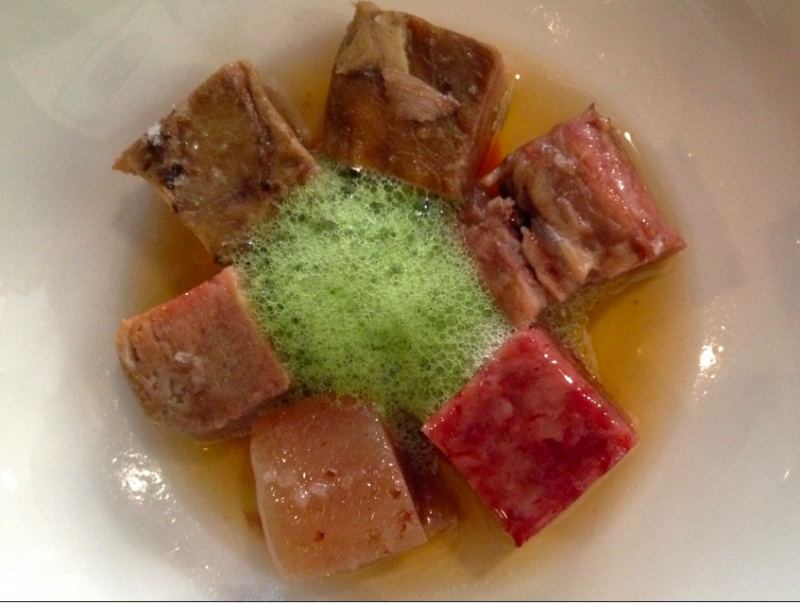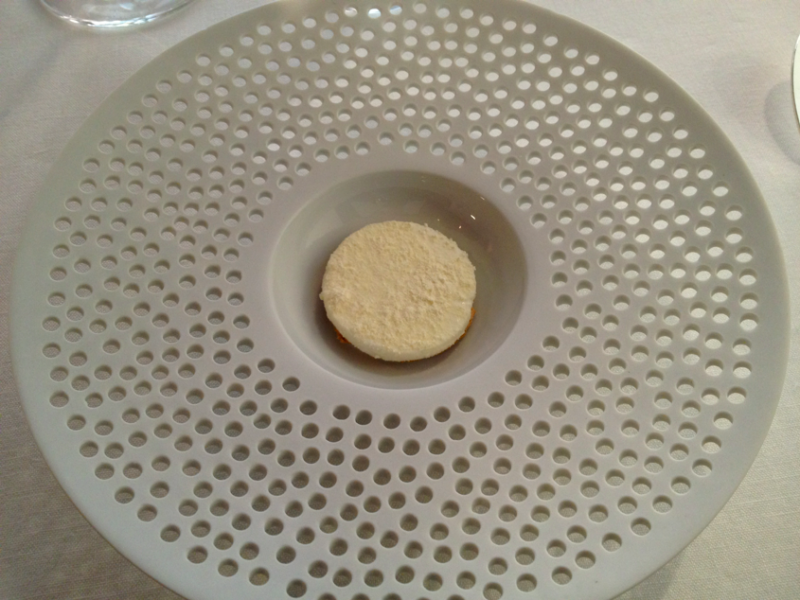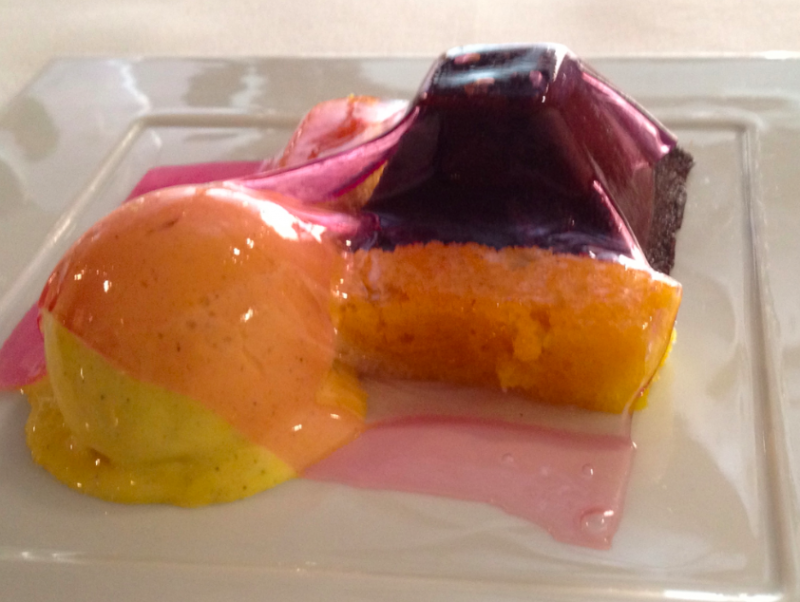-
Posts
7,674 -
Joined
Content Type
Profiles
Forums
Store
Help Articles
Everything posted by Mjx
-
Am I missing something, or does this just seem like an off-the mark combination? I can certainly appreciate hotdogs and champagne, but the don't really seem to mesh (I'm thinking, 'Why not port or madeira? Those make sense.'). I'm fine with irony, but this just seems like something you'd have to pretend to enjoy.
-
Too right! . . . . I think that regional dismissive prejudice is so pervasive and strong that, sadly, it would have carried more weight to say that "He lives in New York City where he is a day laborer" than "He lives in Chicago where he writes for the Times." It also stuns me that, in this day of instant information, when it would have been so easy to discover the credentials of "Marilyn and family" (credentials that include not only a son that writes for the WSJ, but a daughter who was a practicing attorney in Hong Kong and probably fluent in Cantonese, among other lofty and sophisticated and intellectual accomplishments) before sneering and jeering at them, one wouldn't take five minutes to do enough research to know exactly at whom one is sneering and jeering. Oh, please. Enough already the 'us and them' regional nonsense. No one but a hick (by which I mean a state of mind, undefined by place of origin or socioeconomic status) living in a major urban area on one of the two coasts dismisses Chicago as insignificant, and who cares about these people? Regional prejudice and contemptuous dismissiveness of other groups' food preferences are by no means confined to major urban areas. I know heaps of people who reflexively smirk at and mock restaurants that fall into the 'fine dining' category associated with big cities, but attempt to justify it by saying they're 'just folks', they're 'real'. Please. Inverted snobbery is at least as nauseating as straight-up snobbery. Ms. Hagery seems to be an intelligent woman with a keen sense of irony; she must be laughing her head off at the entire brouhaha surrounding her piece on the OG.
-
Well, there's this: And You Call Yourself a Journalist: Wrestling with a Definition of Journalist in Law. I didn't see anything more recent than this article, although I have trouble believing that this hasn't been formally addressed since 1999 (but haven't done any serious digging, either). There are countries (I believe Denmark is one) where you can only be hired as a journalist if you have received a degree as one in that country.
-
I think that about nails it. There doesn't seem to be any definition for 'journalist', certainly none that is consistent from one place to the next, and even for those who hold degrees in journalism, and work for some media outlet in the country in which they received their degree, there don't seem to be any consistent standards for their out. Being paid for writing (regardless of the form it takes) doesn't make for a journalist either, since there are almost certainly bloggers (some of whom may have degrees in journalism/worked at some point in their lives for a media outlet) whose writing meets the most stringent standard anybody might require of a journalist, yet not be compensated for it in any way, and do not refer to/think of themselves as journalists. It seems like 'journalist' is more defined by what it isn't than what it is, and that what it is tightly bound to place (e.g. how many US states have the shield law that Oregon has?).
-
Would you mind elaborating a little on the eucalyptus mousse? The rest of the flavours I can definitely see together, and sound delicious, but I'm curious about the flavour dynamic between the eucalyptus and the coffee+sherry+tobacco grouping.
-
Amazon seems to offer quite a few different options in silicone trays, if you use the search terms 'ice cube tray silicone'.
-
One of the great things about prosciutto and culatello is that, knowing the names of the particular ones you've sampled, you can go out and get some to bring home with you!
-
For dessert, how about panforte? Meets all the restrictions, easily made, keeps well, so can be made in advance. There's a little plain flour in it, but it only serves a thickener, and potato starch/flour would work just as well (I always use rice starch/flour, since I tolerate wheat – and potatoes, for that matter – poorly). The only fat involved is that used on the parchment/pan and dusted with confectioner's sugar (I know I've seen kosher versions without corn flour) or cacao, so margarine can be used. Best of all, it tastes really good, and isn't an 'Almost, but not quite' version of something better. I tweaked David Lebovitz's recipe, and the results were excellent. I've also made gnocchi using rice flour (again, I think potato starch should be usable) and winter squash, instead of wheat flour and potatoes, and they were extremely tender and delicious. RE:coconut oil, Spectrum's is kosher for Passover.
-
How many and what courses... and mayn't the Jewish forum members shove in their oars, too?!
-
Last Thursday my boyfriend and I made the trip from Florence to Modena, to lunch at Osteria Francescana. We went with the Traditional tasting menu, partly because nostalgia features large in any trip I make to Italy. The Proust quotation referring to Madeleines appears at the top of the menu, and, although I felt like I should regard this as a bit contrived, the moment the amuse arrived, it kind of made sense (even if I still don't care for Proust). Some pictures (sorry about the poor quality, but we essentially took them to reminisce over, and to be able to illustrate our enthusiastic descriptions to friends and family): 'Memory of a mortadella sandwich' amuse bouche; the mortadella is a mousse, and the pistachios and garlic appear separately at the right, ground and as a cream, respectively, so all the flavours stood out very cleanly and intensely Massimo Spigaroli Culatello (42 months), Modena Prosciutto (30 months) with a mostarda 'Little finger' tortellini in capon broth Tagliatelle in ragù 'Bollito misto non bollito' (a deconstructed bollito misto; clockwise from a bit past the 18.00 position are head [amazing gelatinous consistency, my favourite, I think], tongue, a bit I forget, trotter, tail, and cotechino; there was an incredibly evanescent parsley foam in the centre, and underneath it all was a reduction of red bell peppers) Pre-desert consisting of a wafer sitting on a dab of yogurt, and topped by a disk of goat milk ice A deconstructed warm and chilled Zuppa Inglese Array of small sweets, including a raspberry gel with rose crumbles (unless I'm very mistaken), some very glossy Madeleines (a nod to the Proust quotation?), and some tiny baba Each course was accompanied by incredible bread, and we shared a bottle of 2009 La Stoppa Rosso, which we were too stuffed to finish. We did manage to fit in coffee, then concluded that remaining seated would mean we'd lapse into a coma, so we paid up, then wandered about Modena until it was time to take the train back to Florence. It's difficult to describe a largely visceral reaction that accurately evokes memories I'd believed were unduly rosy. I don't love dining experiences that verge on performance art, so I particularly appreciated the serene and evocative nature of this meal, but I do realize that for someone who did not got to school in Italy a few decades ago, the impact must be quite different. A moment that stands out clearly is when Mr. Bottura began discussing the amuse, as we began on it, and my spontaneously exclaiming 'Oh!', then briefly reminiscing with him about school merende, savouring a bit of a collective memory. It was remarkably personal. I'd do this all again in a heartbeat.
-
Seems simpler to just use a big enough pot for the amount of water you want to boil, but the colour is kind of cool, and I can see it doubling as a spoon rest and a few other things, so why not?
-
For cocktails, how about rum as the spirit, plus bitter(s) of your choice? A tiny bit of horseradish, possibly, or saffron?
-
Did you miss the bit where it says: " The chicken has always been purchased from a farm or farmers market, never from a grocery store or meat store." Actually, upthread, three posts back, Dianabanana specifically notes: 'I've encountered it twice, both times in grocery store chickens', so the phenomenon seems fairly widely distributed.
-
Alkermes! Actually purchased a couple of days ago, but didn't have much chance to get online while on holiday.
-
I'm a little curious about which locations you mean, and the source of information regarding indifference to organic food. I just Google "life span/expectance by country" dcarch But those are predictions, extrapolations based on trends, and still don't indicate anything about the food consumed by the portion of a given country's population that actually reaches anything close to that age.
-
While objectivity can't be overemphasized, to be fair, a lot of people do have fairly visceral reactions when it comes to food, and I'm not so sure what percent of consumers (even eG members) are on board with the nose-to-tail thing. I mentioned up-thread that the actual anatomical portions involved don't particularly trouble me, but I should add that the fact that the pathogen count is evidently so high that ammonia is deemed necessary in processing it is bit disturbing. And I'm with pretty much everyone who noted that, at the very least, they want to know what they're eating; sometimes you feel like a nut (sorry, 'testicle'), sometimes... you don't
-
I'm a little curious about which locations you mean, and the source of information regarding indifference to organic food.
-

What did I EAT?! Purple, Wobbly... Vietnamese?
Mjx replied to a topic in Elsewhere in Asia/Pacific: Cooking & Baking
Thanks! I'm thinking of experimenting with alchermes to colour some of the layers. -
No, definitely not - according to the same source. Also, according to KA, it doesn't last more than a week or two in the fridge. I'd venture to disagree, although in principle, it should be true. The thing is, fresh yeast is more vulnerable to temperature variation. It also is often packaged in nice little blocks, which are universally attractive to small children (I've noticed this in the US, Denmark, and Italy, anyway), who like to pick one out to carry about the shop, until a parent notices, confiscates it, and sets it on the nearest shelf. There's just no way of knowing whether the yeast has been kept within the ideal temperature range: if it's spent a couple of days on a warmish shelf, obscured by a tin of beans, it may not be in great shape.
-
Yes, every time, now. But I only started after my first batch of 'dead' dough; even then, I was a kind of on again/off again about proofing yeast... until the second batch of dead dough. Then I became very conscientious about it. However, I do bake a lot of bread, so statistically, the odds of my getting a dud batch of yeast are increased. Dead dough is salvageable (it does add substantially to the time needed to finish the bread), but if you're slated to bring the bread for a dinner party or something, it can be a minor crisis. Even if it turns out to be unnecessary 99.999% of the time, proofing only adds a couple of minutes to the overall time (I can't imagine anyone baking bread when an added minute or two, or even ten, is just not an option; I admit to usually only waiting for the earliest signs of yeast activity, rather than a full bloom), and, at least if you're counting on having the bread ready at a specific time, it sure beats the drill surrounding adding more (live) yeast to the dough because the original yeast is moribund, or the slight letdown of running out to the bakery to get a stand-in for your bread.
-

What did I EAT?! Purple, Wobbly... Vietnamese?
Mjx replied to a topic in Elsewhere in Asia/Pacific: Cooking & Baking
Ooo... How large are the cakes this recipe yields? It doesn't say what size pan is used, what size did you go with? -
ATK's The Best Recipe claims to have nailed it (it isn't one of their recipes I've tried, but so far, I've found them consistently reliable), have you tried that one yet? An approximately two-page discussion of their efforts precedes the recipe, so it gives a clear idea of the effect of various tweaks, which is the sort of thing that comes in handy, if their idea of perfection differs from yours.
-
Looks good to me, too. I grew up with it, and this is pretty much what I expect and demand.
-
I'm feeling a bit shy about saying that I (+1) really hope to be in on this, since our plans to make it this year were a complete bust, but I'm feeling hopeful, since the +1 is talking enthusiastically about setting up a fund for this, starting now (among other things, he saw the pictures). Anyone know what the closest international airport happens to be?
-
My boyfriend is dying to get the Gaggenau model SJMitch mentions above (to match the regular Gaggenau we already have), but even though I bake bread at least once a week, I have doubts. My boyfriend mentioned 'steamed vegetables/other things!' I had to point out that it makes more sense to use a steamer basket for a minute on the stovetop, and he hates most steamed things. In terms of cost-effectiveness, it seems like using a steam oven for many of the suggested/possible uses isn't that great: I can't see my way to firing up the oven for 15 minutes to heat leftovers, either, but that may have more to do with the sort of leftovers we usually have, which are easily heated very quickly on the stovetop. But if I could get that steam oven for free, I'd consider it worth it for baking bread


